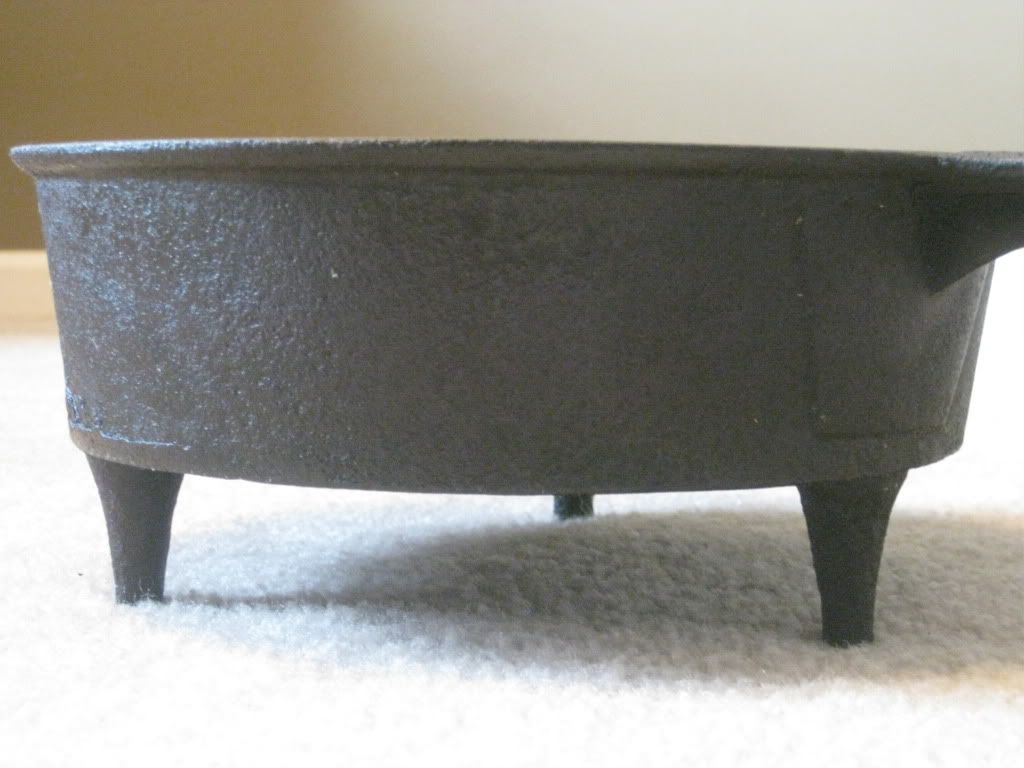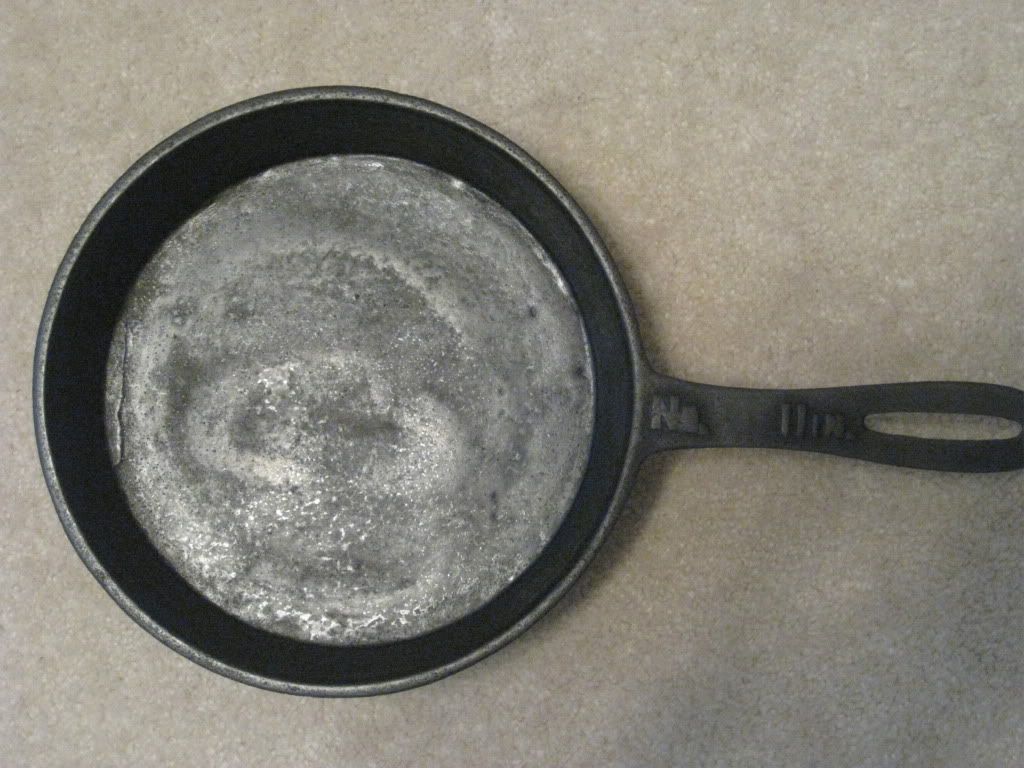:surrender: TIME OUT GUYS :surrender:
OK the thread was about carrying a skillet or aka a frying pan, a small one, and because I was talking about a carbon steel one, a light one. The question was how many folks in our community carry one (implying that if one doesn't one uses something else like a trade kettle). Skillets did exists, both as skillet or with legs and sometimes called a
spider. I have found that when packing a skillet the handle causes packing problems...
So..., The second part of my thread was modifying the skillet (maybe) to have a folding handle. I was thinking more of something historically
inspired, for they did have bolts and wing nuts, and I was thinking using such. If I was going to use something
documentary, I'd have to use a hinged handle.
I wasn't sure about the hinged style folding skillets currently sold, as being all that correct either..., and they cost a pretty penny too. Some folks pointed out that a hinged skillet was used by Romans..., whether it existed since then or was re-invented after 1800 is a good question.
The folding question was for two reasons. One easier packing, and two, I have a large cast iron pot, rather thin sided so not too heavy, and I am experimenting on using it also as a dutch-oven. I have no lid, and a larger version of one of the carbon steel skillets works great as a lid, but for safety I was thinking a skillet of hot coals setting on top of an iron pot with this metal handle sticking out might be a bad idea... hence the folding question.
It IS well documented that some pots in Europe had detachable handles..., and that is another way to go, if I went that way at all.
OK so much for that....,
Now as to documentation, we get into problems when we use words that are absolutes.
Never, always, didn't, couldn't, impossible and others, gets one into trouble. For when one asserts something "didn't exist" then all that is needed to refute that assertion is one example, and it doesn't have to be an extant example. One does not need to have an original artifact when there is an illustration in Diderot, or a painting done in the time period. (Ver Meer has a great many paintings showing material items of his period btw)
Black Hand, though,
does have a point. There is question of commonality. For some folks the fact that Sir John, Barron of Doe, had a piece of gear is good enough that anybody can have such, even when playing the part of a dirt farmer. For others, they need more than the single example, and it needs to show different levels of economic status too. Would the illiterate market hunter carry an elaborate
nautical compass and sundial ?
A prime example in the military reenactment realm is the use of lanterns. They had candles, they had lanterns..., it's all well documented as far as the items are concerned, but the documentation of privates using candle lanterns shows they used them on a very few number of sentry posts, in a very limited manner. Otherwise, no. Military reenactment camps full of candle lanterns is simply not correct. But the alternative is a bunch of near sighted old guys, some in their cups, falling down and getting injured when trying to find their tents at night...., so the items are allowed.
So folding handled skillets are pretty rare, as far as we know, and they are therefore probably overused, based on what we have so far, and folks wanting to pack a skillet and at the same time be very close to historically correct, should pack one with a solid handle, if they pack one at all.
LD







